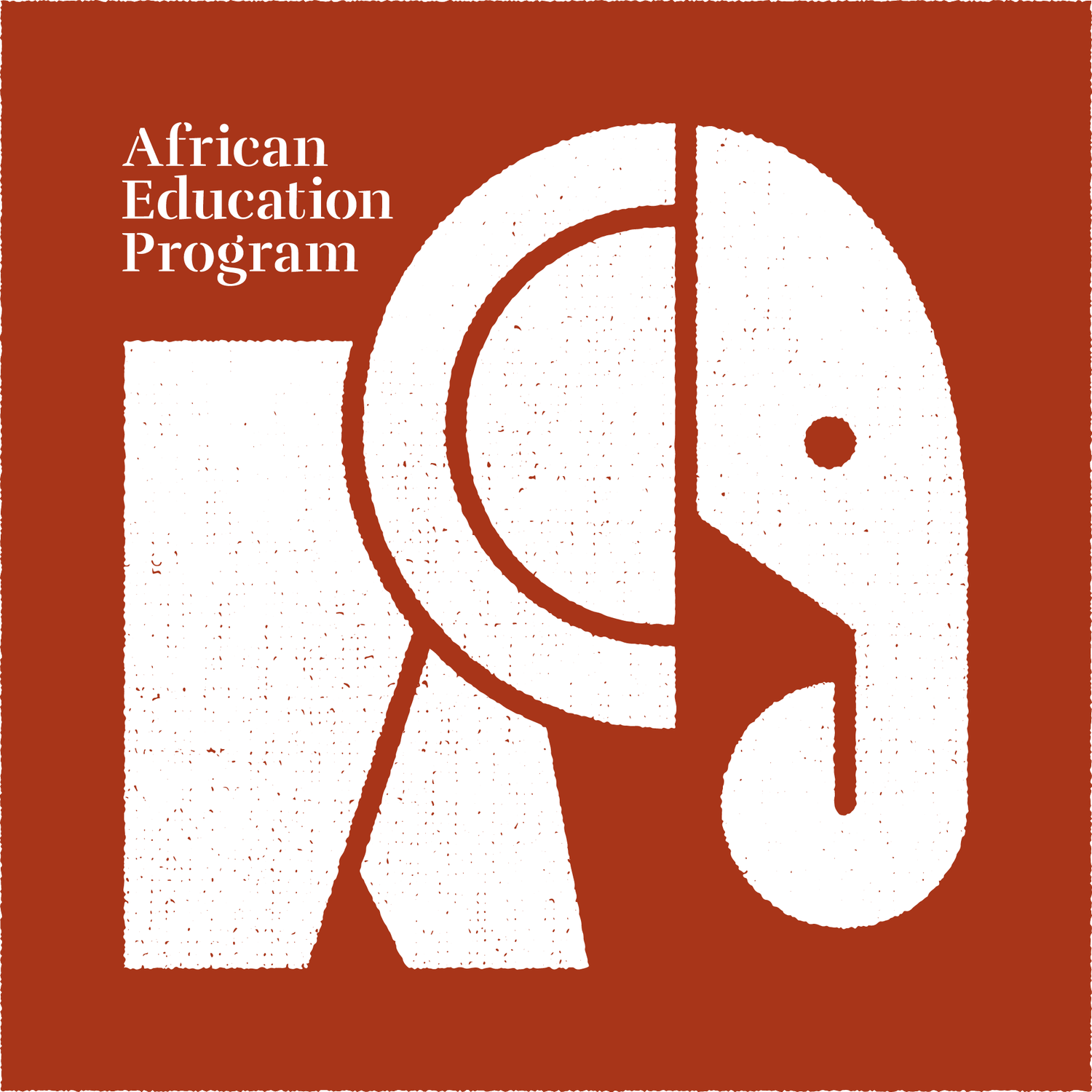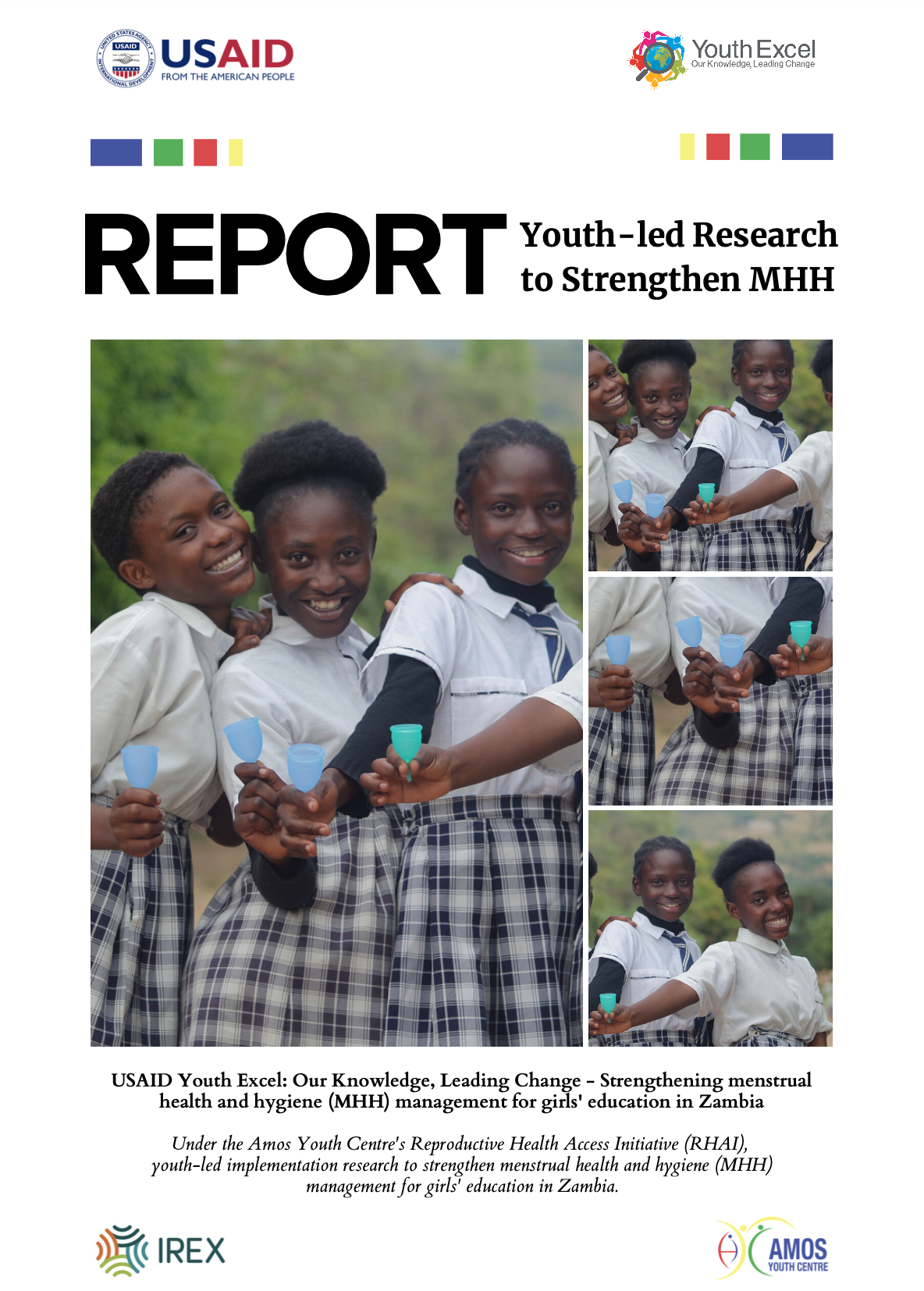We develop and operate programs as part of our holistic model for promoting community-led transformation.
Through our Reproductive Health Access Initiative (RHAI), we’re ending period poverty and empowering girls and women in Zambia.
Access to modern reproductive / menstrual health knowledge and supplies changes lives.
-
Access to contraceptives
Only 10% of adolescent young women in Zambia (ages 15- 19) use modern contraceptives, due to lack of access and education.¹
-
Teenage pregnancy rates
In Zambia, 30% of young women become pregnant before the age of 18. In peri-urban areas like Kafue (where our flagship Learning & Leadership Center is based), 15-20% of young women become pregnant before the age of 18.²
-
HIV / AIDS knowledge
50% of young women in Zambia (ages 15-24) are knowledgeable about HIV prevention, and HIV prevalence among females aged 15-59 years is 14.6%, compared to 9.3% for males of the same age.³
How we’re changing the trajectory of girls and women in Zambia
Menstrual health training for mothers and guardians of students at the Learning & Leadership Center in Kafue, Zambia.
In 2007, we started distributing menstrual pads and condoms to girls and boys at the Learning & Leadership Center. In parallel, we also introduced reproductive health programming at the Center as part of our holistic approach for empowering youth.
Building on nearly 15 years of work, the Reproductive Health Access Initiative (RHAI) was formalized in 2022 to address a multitude of factors that prevent girls and women from dreaming big and achieving their full potential, including:
Lack of information about or access to family planning, modern contraception, and HIV / STD prevention programs;
Systemic barriers to secondary education; and
Gender discrimination and cultural / social taboos that prevent girls and women from accessing crucial healthcare services and exercising their reproductive rights.
By equipping girls and women with the best modern tools to own their health, we’re empowering them to participate fully in education and public life and to achieve their full potential.
Our unique approach
In keeping with our holistic model for community-led transformation, the Reproductive Health Access Initiative (RHAI) is a collaboration between community members, local leaders, and our trusted partners.
Through our partnerships with Saalt and Pixie Cup, we’re distributing reusable menstrual cups and period underwear to the girls and women at the Learning & Leadership Center so they can take full advantage of their academic and professional opportunities.
Ending period poverty
Guided by our belief that access to modern menstrual health knowledge and supplies changes lives, we distribute reusable cups, pads, and period underwear, and empower girls at the Learning & Leadership Center to choose what works best for them. The freedom of choosing the product they use is vital for creating girls’ agency and lifting them up to participate fully in their education and in public life.
Creating girls’ agency
We believe that community members are best-positioned to create sustainable change, so we’re working with family members in the community to start a dialogue and to shift perspectives on menstrual health, contraception, and reproductive rights.
Shifting community perspectives
To amplify the impact of the RHAI, the Learning & Leadership Center is training students as peer educators so they can teach their fellow students about reproductive health, contraception, teenage pregnancies, HIV prevention, and self-esteem — and further drive community-led change.
Promoting peer education
In collaboration with local partners like Pride Community Health Organization (PRICHO), we're unlocking access to inclusive, judgment-free reproductive health consultations, pregnancy and HIV testing, contraception, and educational materials.
Increasing access & options
Recognizing that boys, girls, women, and men can all participate in community-led change, the Boys Talk Club meets weekly at the Learning & Leadership Center to educate boys about gender equity, reproductive / menstrual health, and how they can empower girls and women.
Empowering boys
We’re lifting up girls and women through the RHAI and our holistic programming
Our impact
98% of the students at the Learning & Leadership Center don’t become pregnant before the age of 18, allowing them to dream big and to chart their futures.
430 menstrual cups distributed to date.
486 reusable pads distributed to date.
100% of girls at the Center who received a reusable cup or pads reported that the supplies were helpful or extremely helpful.
89% of girls at the Center who received reusable pads report using them during every period.
RHAI participants report a higher level of well-being than non-participants, and are less likely to be absent from school due to lack of access to menstrual products.⁴
In 2022, our flagship Learning & Leadership Center in Kafue, Zambia won its first USAID Youth Excel Research-to-Change grant.
We believe that community members and leaders are best-positioned to create sustainable change. The USAID grant is allowing the Learning & Leadership Center (Amos Youth Centre) to develop, test, and iterate on community-led solutions for changing the cultural and social taboos surrounding menstrual health and hygiene.
In 2024, our Learning & Leadership Center was awarded a Follow-On Opportunity grant under this USAID Youth Excel Research-to-Change project.
Through the creation of an inclusive and sensitive open source educational storybook, My Period Our Story was created in print, audiovisual and braille formats.
The storybook addresses critical barriers to menstrual health education and is tailored to the unique needs of Zambian youth, fostering a safer, more supportive environment for all students.

Give the gift of empowerment
When we invest in girls and women, we empower them to own their futures and to build stronger, healthier, and more resilient communities and economies.
Data sources
1 Johns Hopkins Center for Communication Programs, 2022: https://ccp.jhu.edu/2021/02/15/zambia-reducing-teen-pregnancy/
2 UNFPA: Adolescent Pregnancy in Zambia, October 2022. Disturbing rise in teenage pregnancy, child marriage, gender-based violence and HIV infection in adolescent girls in East and Southern Africa – we need to act collectively and with urgency: https://zambia.unfpa.org/en/news/disturbing-rise-teenage-pregnancy-child-marriage-gender-based-violence%C2%A0-and-hiv-infection
3 Zambia Population-based HIV Impact Assessment (ZAMPHIA): https://phia.icap.columbia.edu/countries/zambia/
4 “Reuse Rise Rejoice: A Menstrual Health Program Evaluation”, capstone project recognized with distinction at the Fels Institute of Government at the University of Pennsylvania. Search for this project under project year 2022 and African Education Program.
5 Unleashing the Potential of a New Generation: How USAID is helping empower youth around the world to lead menstrual health and hygiene solutions in their communities: https://www.globalwaters.org/resources/assets/unleashing-potential-new-generation













